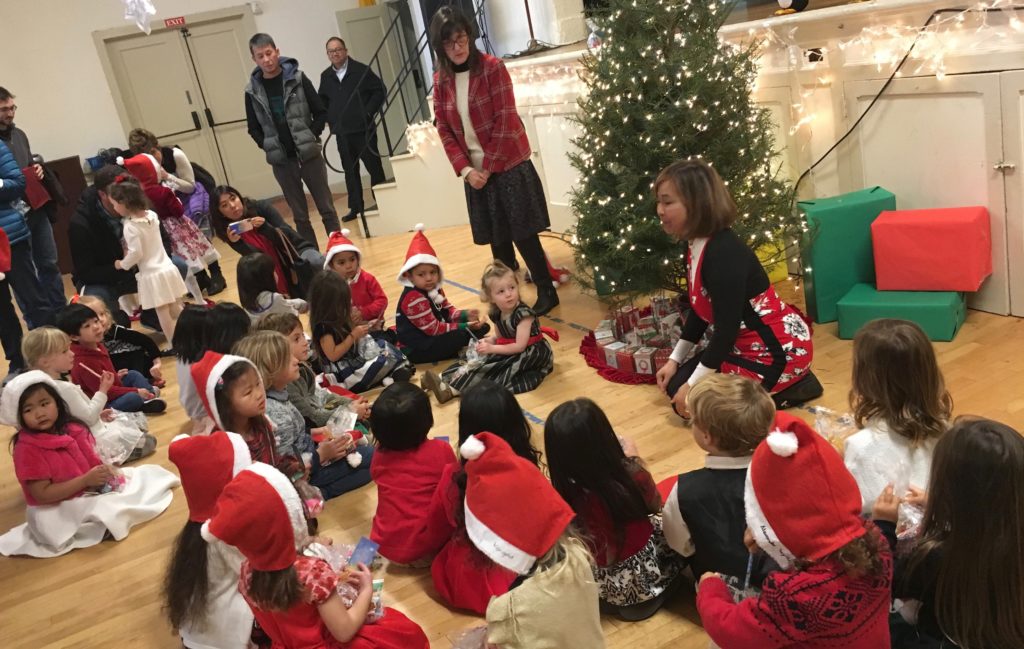Star of the Sea Integrated Classical Program
The Integrated Classical Program at Star of the Sea School is part of a growing “Classical Curriculum” movement in our country. This approach to education takes many forms, from the Classical Conversations program so popular among homeschoolers to the Waldorf Schools preferred by many in the tech industry. Children learn in three stages: reading, thinking, and speaking. We begin first by “reading” the natural world around us, both through language and pictures. We next to “think” about what we’ve read, making logical connections between all these facts and experiences. Finally, we “speak” to others, through articulate discourse, about the logical order we’ve discovered.
Classical education calls these three stages the “trivium:” grammar, logic, and rhetoric. In kinder through second grade children will focus on “grammar,” which includes memorizing facts and lists of natural phenomenon, learning the terminology that expresses these phenomena. In third through fifth grades students will move into “logic,” which discovers the rational order among all these facts and phenomena. In sixth through eighth grades students will develop “rhetoric,” which articulates this logic through oral presentation and discursive argumentation.
Classical education teaches students critical thinking skills through an integrated education in the humanities and the liberal arts, giving students a mental agility with which they can excel in any career. It leads to a sense of wonder at the beautiful order of God’s creation by studying the Great Books, the high-water marks of our culture’s great thinkers and artists. Finally, and most essentially, a Catholic Classical education understands everything in the natural world as ordered by God and redeemed in Christ Jesus. The world is rationally ordered to and through the Logos, the Word spoken by God to us, his beloved creation.
2019-20 will be our first year as a Catholic Classical school in San Francisco. You can see how Classical Curriculums have developed in other Catholic schools around the country by visiting their websites. We recommend St. Therese Carmelite School in Alhambra (CA); Our Lady of Lourdes in Denver; and St. Jerome Academy in Hyattsville (MD). We also recommend the following articles on Classical Education: Classical Education is more than a Method, by Martin Cothran, and What is Classical Education?, by Susan Wise Bauer.
We welcome your child’s application to Star of the Sea Classical School. Please follow this link to our application process.
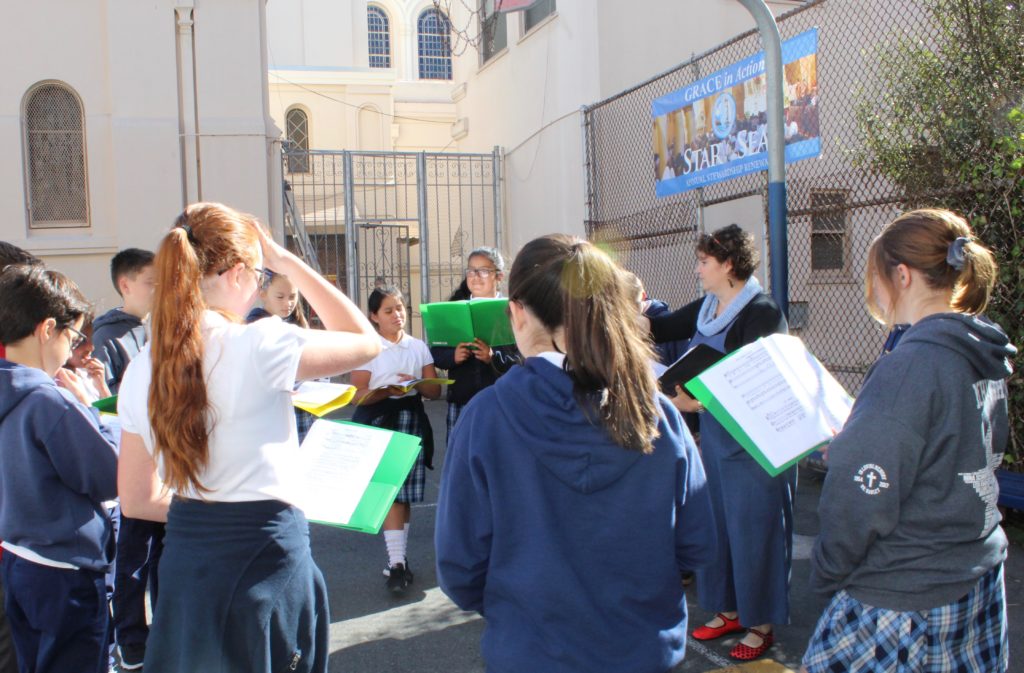
Middle school children at a school chant camp. 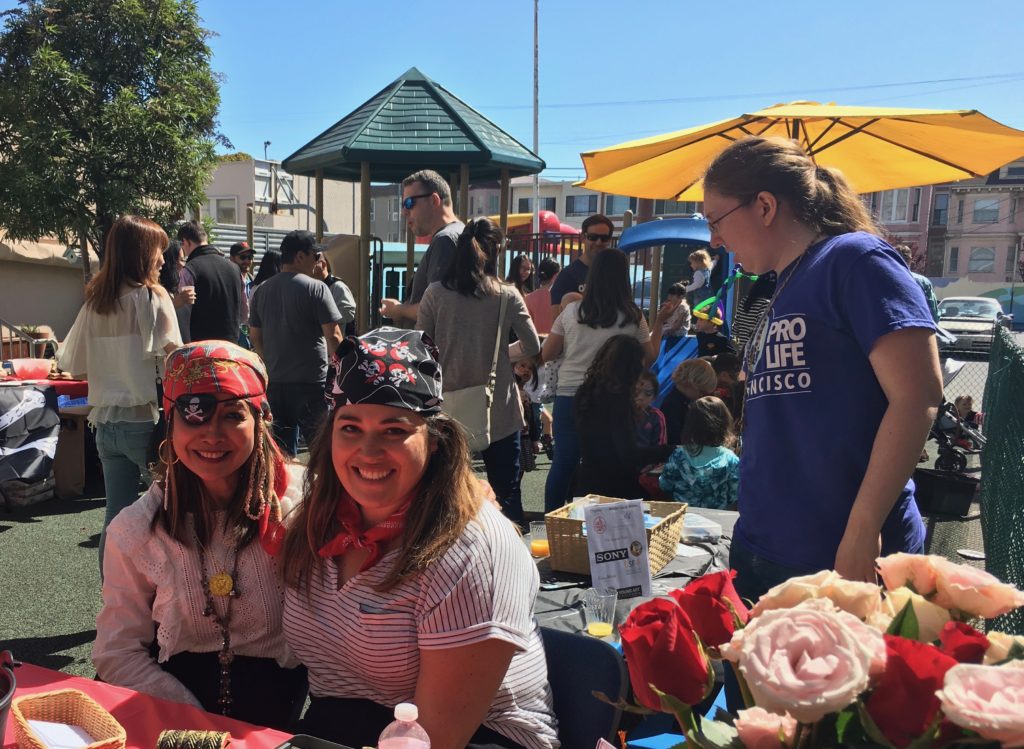
Family event at the preschool. 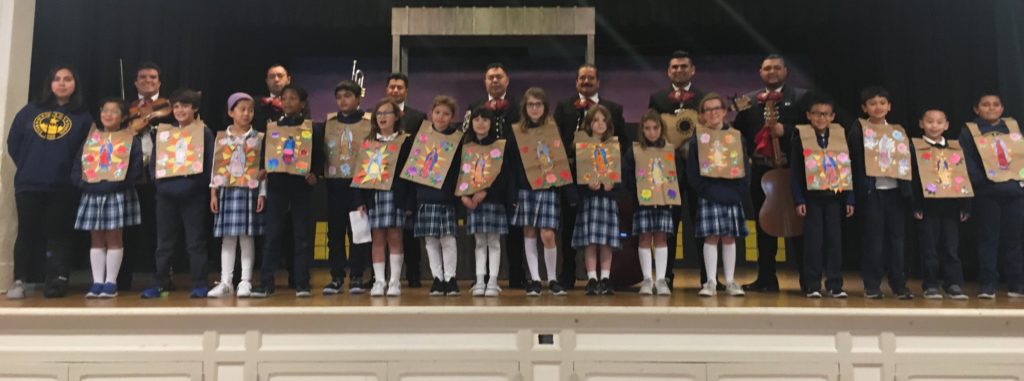
Third Grade class, Our Lady of Guadalupe Feast. 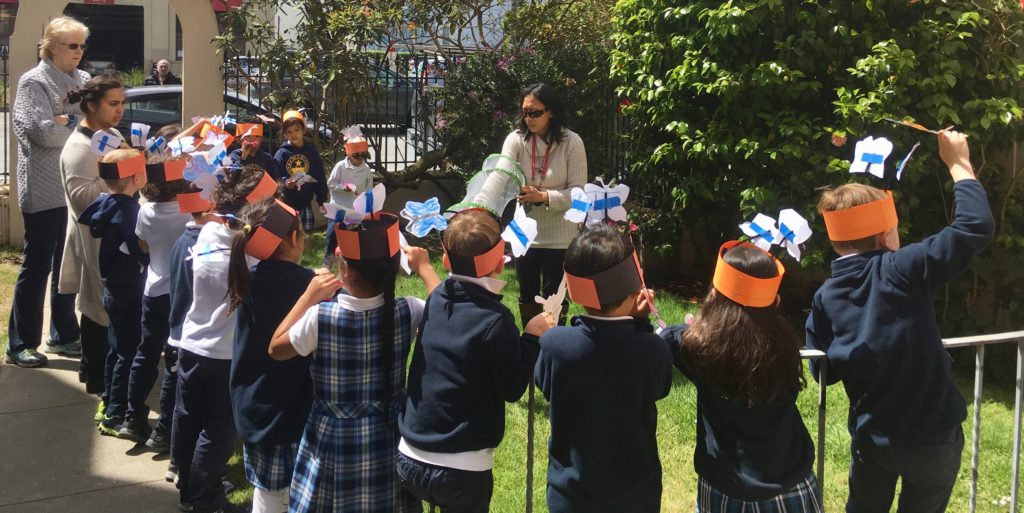
Kindergarten class releasing butterflies on a beautiful sunny day in San Francisco.
What do you want most for your child?
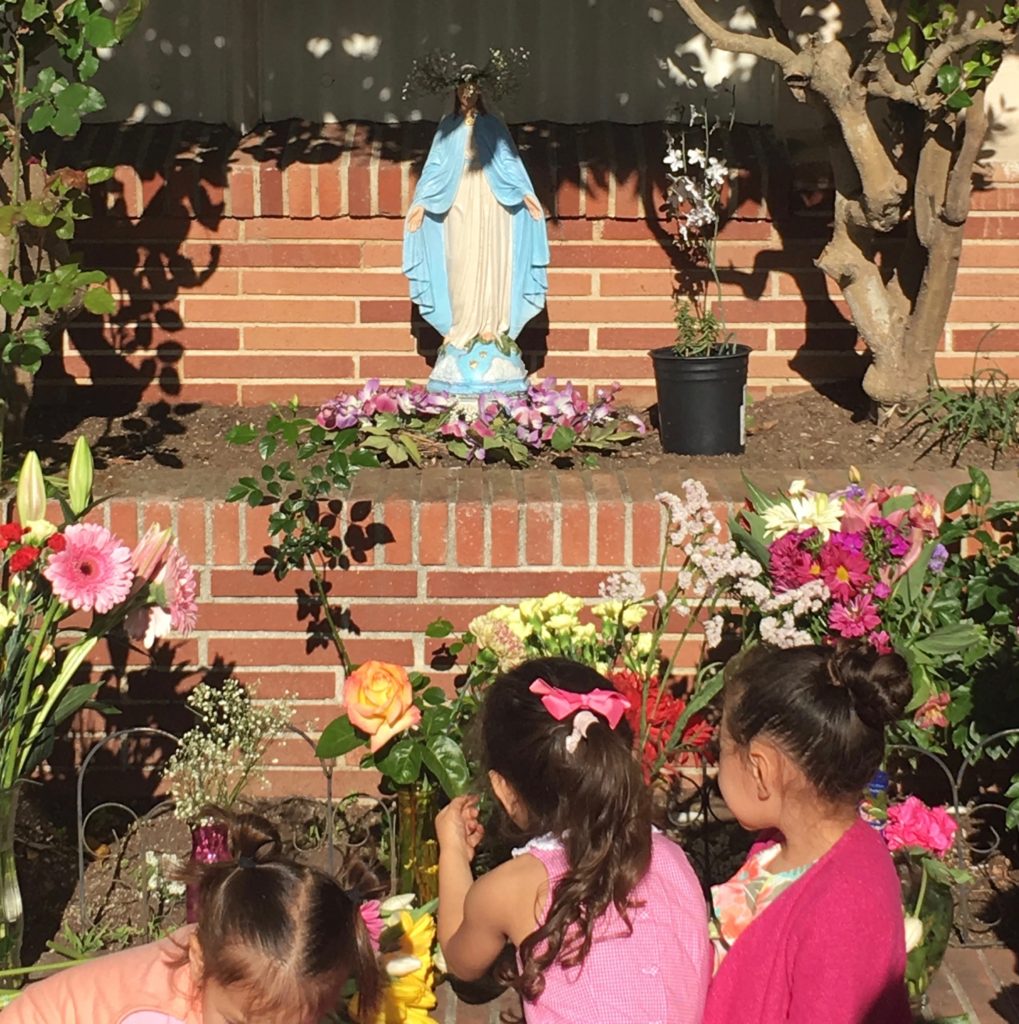
Preschoolers exploring the school garden.
Whether you are a parent of yesterday, today, or tomorrow, the most common responses are sure to include that you want your child to be both happy and successful. The right education is a critical component of that goal. At Star of the Sea, our program will educate the heart and mind of your child while preparing him or her for not just high school but will also teach your child the tools of learning for a lifetime.
Our modern world is rapidly advancing and many of the jobs that your child must be ready for do not even exist yet. Content in college courses is changing each year as technological and social shifts influence what the workforce looks like. So too is it well known that one’s “dream job” is not necessarily, often surprisingly so, the ultimate key to happiness. A Classical education is an ideal foundation for developing reasoning and wonder in a child, two critical elements in being able to adapt to changing situations positively.
Since 1909, Star of the Sea School in San Francisco’s Richmond district has been providing excellence in Catholic education. We are excited to announce that in Fall of 2019, we will be the first school in the Archdiocese of San Francisco to offer an Integrated Classical Program. While maintaining our trusted education services and nurturing environment, the school will add elements that strengthen and increase the quality program that we have been providing to families for over 100 years.
Here are some answers to common questions about this new development:
What exactly is an Integrated Classical Program and how is this different from what you have been doing?
Our model is a Catholic Liberal Arts one, which focuses on a Christian-centered curriculum, as Catholic schools tend to do. The additions include:
- An emphasis on the great works of the classical world, including mythology for the younger grades and Greek philosophy for the middle school
- A more unified approach to teaching throughout the entire school. For example, we will have themes that run from Kindergarten through 8thgrade, with each teacher presenting them in ways that are appropriate for his or her grade level. This is often referred to as the “golden thread” of Classical education
- A hands-on and philosophical approach to science and math that includes viewing these disciplines through the lens of divine revelation
- Continued preparation for standardized tests, which is important, but going beyond bubbling in answers and multiple choice questions to include more open-ended assessments
What is so unique about a Classical education and how do you know it works?
The core tenet of a Classical education is “The right stage for every age”. This approach to learning meets children where they are in their natural development by following the Grammar, Logic, and Rhetoric model. Younger children from Kindergarten to 5thgrade love to play with language and are wired to appreciate rhymes and repetition. We will use that to develop a foundation of both important facts and joy of learning. At the middle school level, grades 6-8, students naturally start to question and challenge. This is the perfect time to channel that energy toward positive means of critical engagement and debate.
Albert Einstein, C.S. Lewis, the Founding Fathers, and Jane Addams all had a classical education and their astonishing accomplishments to society are a testament to the way that their minds and hearts were formed in the early years. Their education was the springboard for their great contributions to humanity and personal fulfillment.
FAITH * REASON * WISDOM
“Wonder is the beginning of wisdom,” Socrates
